-
Tips to Look After your Teeth
Are you doing everything you can to take care of your teeth? Your oral health should be a high priority because the health of your mouth impacts the overall health of your body. Follow these ten tips, and you’ll be able to keep your teeth in tip-top shape.
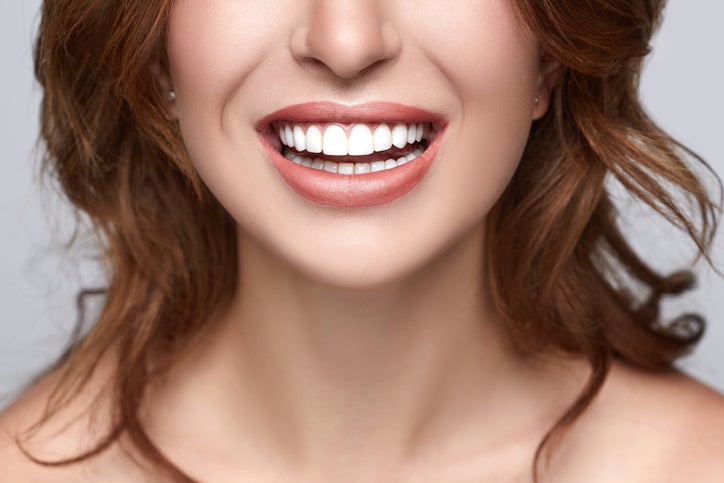
- Brush no fewer than two times each day. It’s best to brush after meals, with a toothbrush that has a small head, for easier access to the back teeth. Use soft bristles, because they’re easier on your gums.
- Brush the right way. Spend between two and three minutes, brushing each tooth, using small, circular motions.
- Use the right toothpaste. A fluoridated toothpaste is best, because fluoride is proven to reduce your risk of tooth decay by hardening the enamel.
- Floss every day. Be gentle, sliding the floss gently up and down between your teeth, and working it back and forth. Gently curve it around the base of each tooth, taking care to go beneath the gum line. Use clean sections of floss for each tooth, and never force or snap the floss between your teeth.
- Cut down on acidic drinks. Soft drinks, cordials, and fruit juices can soften teeth, dissolving the minerals in the enamel and causing holes (cavities).
- Reduce your sugar, too. Sugar is turned into acid by the bacteria in dental plaque, which is why it can cause cavities.
- Use protective gear when your teeth are at risk. If you play sports, always wear a mouthguard or full-face helmet.
- Know what to do with a knocked-out tooth. Sometimes even protective gear is not enough. If a tooth is knocked out, try to hold it in place while seeking dental care. If that’s not possible, place the tooth in milk or wrap it in plastic, then get to a dentist.
- Don’t use your teeth as tools. We’re all guilty of doing this from time to time. We use our teeth to rip open packaging, crack nuts, or open a bottle. It’s a bad idea though, because you can chip or even break your teeth that way.
- See your dentist regularly. It’s recommended that you visit your dentist every six months for a check-up, but if you have a problem like bleeding gums or a toothache, make an appointment as soon as possible.
If you need a dentist in New York, consider Park 56 Dental Group, where we provide personalized, quality dental care in a spa-like environment. We serve the Midtown, Central Park, Upper East Side, Park Avenue, and all surrounding Manhattan and New York areas, with a patient-centered practice that has hours to fit your schedule. Schedule your complimentary consultation today by contacting us online or calling us at (212) 826-2322.
-
Choosing the Best Toothbrush
You know that you need to brush at least twice a day, but are you using the right tools? Fluoride toothpaste will go a long way toward protecting your teeth from cavities, and the right technique is important in getting your teeth clean. However, it’s important that you’ve got the best toothbrush for the job. How do you choose the right one?
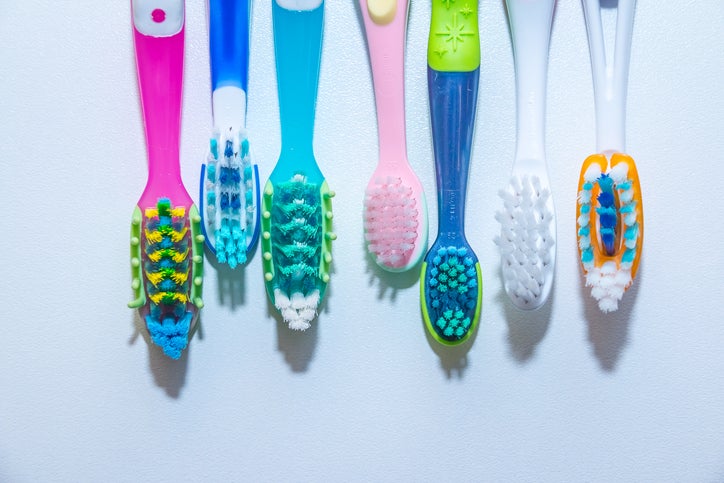
- First, consider the size. Choose a toothbrush with a head that will easily fit into your mouth and access all the surfaces of your teeth. Typically, this means picking a brush with a head about a half-inch wide and one inch tall, so that you can reach even the difficult places, like the sides and backs of your molars. Make sure the handle is long enough to fit comfortably in your hand and easily reach the back of your mouth.
- Pick the right bristles. For most people, a soft-bristled toothbrush is best, because it won’t damage the gums or tooth enamel. For further protection, you might want to choose a brush with rounded tips on the bristles.
- Ask an expert. To be sure you’re choosing the right toothbrush, consider asking your dentist for a recommendation, or look for a toothbrush with the American Dental Association (ADA) Seal of Approval. This seal ensures that the bristles will have safe tips and won’t fall out of the toothbrush, the handle will withstand normal use, and the toothbrush will reduce plaque build-up and gum disease. If the toothbrush is electric, it must undergo independent safety testing to earn the seal, proving that it can be safely used on the tissues of the mouth and teeth, as well as dental hardware.
- Which is better, disposable or electric? Manual and powered toothbrushes are equally effective, as long as you’re using proper technique and brushing at least twice a day. Some studies indicate that a rotation oscillation powered toothbrush is best, though other studies suggest that electric toothbrushes increase the risk of infection for people with certain heart conditions. Electric toothbrushes are more expensive, but some people find them easier to use, especially people with conditions like arthritis, which limits mobility. Ultimately, the best choice for you is the toothbrush you like best because you’ll be more likely to use it.
- How do you choose for a child? Choose a toothbrush your child will find appealing and want to use. Make sure it’s got the ADA Seal of Approval and is child-sized, with soft bristles. Involve the child, if possible, to make tooth-brushing more exciting.
If you need a dentist in New York, consider Park 56 Dental Group, where we provide personalized, quality dental care in a spa-like environment. We serve the Midtown, Central Park, Upper East Side, Park Avenue, and all surrounding Manhattan and New York areas, with a patient-centered practice that has hours to fit your schedule. Schedule your complimentary consultation today by contacting us online or calling us at (212) 826-2322.
-
4 Tips for Better Dental Health
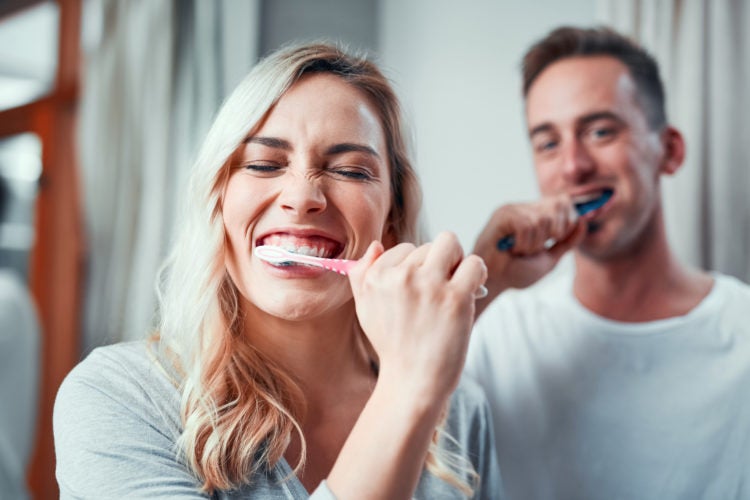
You’ve heard it all before: brush your teeth twice daily, floss regularly, see your dentist every six months, and don’t eat too much sugar. Still, even if you do everything right, you may learn that you need the occasional filling. Why would that be? The fact is, you might be doing it wrong.
First, let’s talk about brushing.
By brushing, you remove plaque, a sticky substance made of bacteria, bacterial acid, sticky byproducts and remnants of food. Plaque forms on teeth immediately after you eat, and for a while, it just sits there. After about 12 hours, it matures and starts damaging your teeth. The bacteria consume sugar and produce acids, which dissolve the minerals out of your teeth, forming microscopic holes. If you don’t stop the process, those holes turn into cavities.
How do you stop it? First, spend two minutes brushing your teeth, twice a day. Two minutes might seem like a long time, but it’s good for effectively removing plaque. Brushing for two minutes twice a day keeps bacteria from reaching the stage where it starts producing acid. A small, medium-bristled toothbrush, employed in small, circular, back and forth motions will clean your teeth effectively without harming your gums.
You should be using fluoride, but you should also be using disclosure tablets.
Fluoride toothpaste prevents tooth decay by replacing lost minerals and making your teeth stronger. Ask your dentist for recommendations, because some brands don’t have strong enough fluoride. Another tool for conquering plaque is disclosure tablets, which make plaque visible so you can see the spots you’ve missed.
Spitting is better than rinsing.
You don’t produce very much saliva at night, making your teeth more vulnerable when you’re sleeping than they are during the day. Brush before bed to remove plaque and food debris, but don’t rinse your mouth, because you’ll rinse away the fluoride before it gets a chance to work. Just spit, and then don’t eat or drink anything except water.
Watch your sugar even more than you are.
You may think you’re limiting sugar enough, but it can be helpful to count the amounts of “sugar hits” you’re consuming each day, keeping it to four or less. One can of soda has more sugar than you should consume in one day. While sugars found in whole fruits are not damaging, sugar in processed carbohydrates like chips and sweet snacks counts as a sugar hit.
One of the best things you can do for your dental health is to see a dentist every six months.
If you’re looking for a dentist in New York, consider Park 56 Dental Group, where we provide personalized, quality dental care in a spa-like environment. We serve the Midtown, Central Park, Upper East Side, Park Avenue, and all surrounding Manhattan and New York areas, with a patient-centered practice that has hours to fit your schedule. Schedule your complimentary consultation today by contacting us online or calling (212) 826-2322.
-
When It’s Not a Good Idea to Brush Your Teeth After You Eat
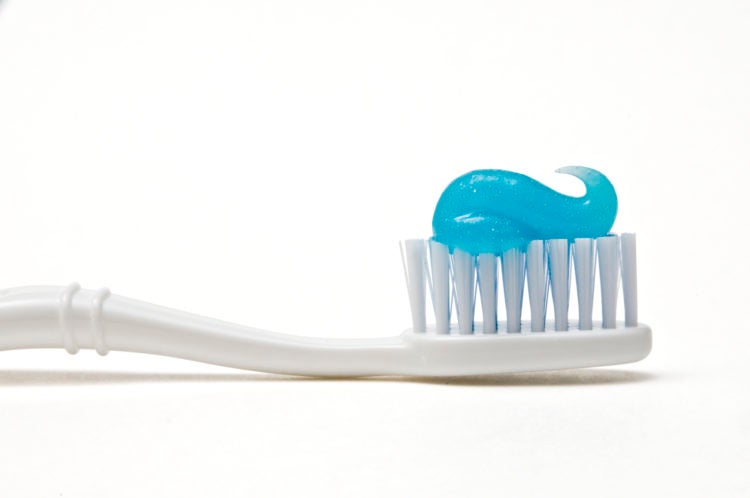
So you know you’re supposed to brush your teeth at least twice a day, right? If you’re like most of us, you probably figure that the more times a day you brush your teeth, the better. Well, guess what? According to dentists, afterward after a meal can do more harm than good.
Do you brush your teeth after breakfast? It may be better to brush when you first wake up, instead. This is because when you eat or drink something with a low pH level, it can damage your enamel to brush immediately afterward. Which foods have low pH levels? Anything acidic, like citrus fruits. So if you’ve had orange juice with your breakfast, for instance, brushing your teeth right after your meal can wear away at your enamel. (By the way, coffee is acidic too, but not as acidic as citrus.)
Why is it bad to brush after eating acidic foods? These foods can soften your enamel, and then when you brush, you can wear that enamel down. When your enamel wears away, it allows cavities to form in your mouth. If you’ve eaten anything sugary that can stick to your teeth, you’re at an even higher risk of cavities, because that sugar can stay in the mouth even after brushing. Rather than brushing right after a meal, it’s a better idea to rinse with water to remove any food particles from your mouth, and then wait at least thirty minutes after a meal before picking up your toothbrush.
What happens during those thirty minutes? Your saliva goes to work. Saliva is one of the body’s biggest defenses against tooth enamel erosion and cavities. It neutralizes the pH in your mouth, making it safe for you to brush without fear of eroding your teeth.
For optimal oral health, brush at least twice a day, allowing at least thirty minutes after a meal before brushing. Use a soft-bristled brush, and brush your teeth for two minutes, using short, circular back and forth motions, and remembering to brush your tongue as well. Floss at least once a day, and use a mouthwash with fluoride. Eat a nutrient-dense diet, full of fruits, vegetables, and calcium-rich foods, and see your dentist every six months.
If you’re looking for a dentist in New York, consider Park 56 Dental Group, where we provide personalized, quality dental care in a spa-like environment. We serve the Midtown, Central Park, Upper East Side, Park Avenue, and all surrounding Manhattan and New York areas, with a patient-centered practice that has hours to fit your schedule. Schedule your complimentary consultation today by contacting us online or calling us at (212) 826-2322.
-
Oral Health Tips

Is it inevitable for people to lose their teeth as they get older? Many people believe that to be true, but in fact, it’s a persistent myth. It’s normal to lose your baby teeth, but losing your adult teeth is not a normal part of the aging process. In fact, if you take care of your teeth, you can maintain good oral health throughout your lifetime. We’ve got some tips to help you make that happen.
- First, embrace fluoride. Some people are skeptical about fluoride because they believe it to be dangerous. Misinterpreting data, people claim that fluoride causes everything from dementia to bone cancer. In fact, every major health organization is in agreement that fluoride is beneficial. By adding fluoride to the community water systems, the United States has reduced oral health problems significantly. Drinking fluoridated water and brushing with fluoride toothpaste protects teeth from decay.
- Make good oral hygiene a habit. Brush your teeth for two minutes, two times a day. Floss between your teeth at least once a day, and follow it up by rinsing with a fluoride mouthwash. Visit your dentist every six months, so that any problems with your mouth can be caught early.
- Just say no to tobacco. Don’t use any tobacco products at all. If you are a smoker, quit. If you’re having trouble quitting, talk to your doctor and get some help.
- Limit your alcohol consumption. Drinking too much alcohol greatly increases your risk of oral cancer.
- Keep diabetes under control. Diabetes can increase your risk of gum disease and other complications. At the same time, periodontal disease can increase blood sugar.
- Pack your diet with nutrients. Limit sugar, eat nutrient-dense foods like fruits and vegetables, along with plenty of protein and calcium. Drink water to stay hydrated.
- Try to avoid dry mouth. If you’re taking medication that causes dry mouth, ask for a different medication. If it is unavoidable, drink plenty of water and chew sugarless gum. Saliva helps keep your mouth’s pH healthy.
- See your dentist as soon as possible if there’s a problem. Sudden, changes in taste or smell should be reported immediately.
If you’re a caregiver for an older person, assist in brushing and flossing if the person can’t do it independently. Schedule regular dental exams for the person in your care, and be aware of the way any medication may be affecting his or her oral health. Often, medication can impede a senior’s ability to practice good oral hygiene and can cause dental issues like dry mouth.
If you need a dentist in New York, consider Park 56 Dental Group, where we provide personalized, quality dental care in a spa-like environment. We serve the Midtown, Central Park, Upper East Side, Park Avenue, and all surrounding Manhattan and New York areas, with a patient-centered practice that has hours to fit your schedule. Schedule your complimentary consultation today by contacting us online or calling us at (212) 826-2322.
-
Invisalign FAQs
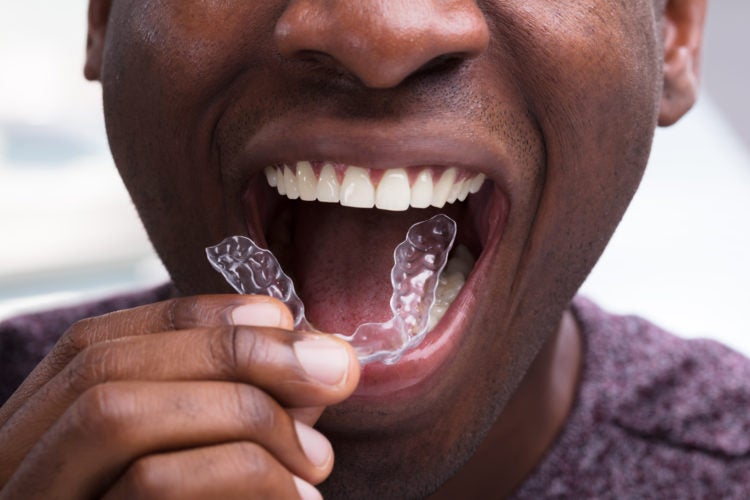
Invisalign is a popular treatment for gradually straightening teeth, using clear, removable aligners. It doesn’t involve brackets or wires and isn’t as restrictive as metal braces. If you’re interested in Invisalign, you probably have some questions about how it works, so we’ve put together this list of frequently asked questions to help you decide whether Invisalign is right for you.
- What is Invisalign, and how does it work? Invisalign uses aligners made of a patented thermoplastic material called SmartTrack®, which is FDA-approved and contains no BPA, BPS, latex, or gluten. These aligners are virtually invisible, because they’re thin, clear, and fit over your teeth snugly. Using a unique, digital treatment plan created by your doctor, the Invisalign aligners are designed to apply force at exactly the right place and time, and your progress will be closely monitored by your doctor.
- Why should I choose Invisalign? The aligners’ near-invisibility is a major benefit, primarily because people might not even notice you’re wearing them. Unlike traditional braces, the aligners can be removed when you eat, drink, brush, and floss, and for special occasions. There are different aligners on the market, but Invisalign aligners are the only ones made of SmartTrack, which fits better and is more comfortable.
- Can anyone use Invisalign? Invisalign is a great way for both adults and teens to improve their smile without the hassle of traditional braces. Almost all common teeth-straightening and bite issues can be fixed using Invisalign’s innovations and technological advancements. There’s even a blue dot on the outside of teen aligners, to help parents make sure their teens are wearing their aligners enough.
- How many hours a day must I wear Invisalign? You’ll need to wear your aligners 20 to 22 hours each day, changing to a new set of aligners every week or two, under the guidance of your doctor. You’ll have regular appointments with your doctor, typically every four to six weeks, to monitor your progress.
- How long does Invisalign treatment take? The length of Invisalign treatment varies from patient to patient and depends on a variety of factors. Your doctor will evaluate the complexity of your case to determine how long your treatment should take, but how conscientious you are about wearing your aligners will have an impact on your progress as well. The average treatment time is 12-18 months, but many patients begin seeing results in just a matter of weeks.
- Can every dentist and orthodontist provide Invisalign treatment? Doctors who want to offer Invisalign treatment to their patients must complete specialized training and become certified Invisalign providers.
Park 56 Dental Group is a certified Invisalign provider, offering personalized, quality dental care in a spa-like environment. We serve the Midtown, Central Park, Upper East Side, Park Avenue, and all surrounding Manhattan and New York areas, with a patient-centered practice that has hours to fit your schedule. Schedule your complimentary consultation today by contacting us online or calling us at (212) 826-2322.
-
Does poor oral health impact brain function?

The health of your mouth is a fairly accurate indicator of your overall wellbeing. We’ve long known that tooth decay is linked to certain health conditions, but did you know that poor oral health can have an impact on your brain function? According to two new studies, inattention to oral health may lead to cognitive decline in elderly people.
In 2010, a study concluded that gum disease increases the risk of heart disease by about 20 percent, and in 2014, researchers found a link between oral health and stroke risk. Now, scientists at Rutgers University in New Brunswick, NJ, are studying the link between oral health and cognitive decline. A recent review of 23 studies studying oral health and cognitive factors like memory and executive function found evidence of a relationship. Additionally, the Rutgers University team has completed two studies into cognitive decline and perceived stress, both of which have been published in the Journal of the American Geriatrics Society.
These studies focused on elderly Chinese Americans, a population at risk of poor oral health because of a lack of dental care, exacerbated by a language barrier. In the first study, the participants, all over 60, were quizzed on their oral health and asked to complete five cognitive tests. The second study asked about dry mouth issues, then requested that the participants measure their levels of social support, social strain, and perceived stress. The researchers defined social support as how often the participants felt able to open up to or rely on family and friends, while social strain measured how often they felt there were excessive demands or criticisms from the same people.
Nearly half of the 2,700 people interviewed reported tooth-related symptoms, with over a quarter saying they’d experienced dry mouth. Participants did not report as many gum-related issues, but researchers believe this is simply because they find these issues less problematic.
The two studies found a link between tooth symptoms and cognitive decline, particularly global cognition and episodic memory decline. This is significant because episodic memory issues are linked to the onset of dementia. The studies also found that support from friends reduces perceived stress and made participants less likely to report dry mouth.
The takeaway is that perceived stress can impact oral health, which in turn can lead to cognitive decline. These findings seem to indicate a need for better awareness of the psychosocial health of the elderly, particularly immigrants. Intervention strategies that account for factors like stress and social support in addition to health conditions and behaviors, could help reduce the risk of cognitive decline.
At Park 56 Dental Group, we provide personalized, quality dental care in a spa-like environment. We serve the Midtown, Central Park, Upper East Side, Park Avenue, and all surrounding Manhattan and New York areas, with a patient-centered practice that has hours to fit your schedule. Schedule your complimentary consultation today by contacting us online or calling us at (212) 826-2322.
-
What Does My Snoring Mean & What Should I Do About It?

If you’re someone who snores, you probably already know it’s a problem. Snoring can disrupt your sleep as well as the sleep of anyone sharing your room, and can even have a negative impact on your relationship with your significant other. Unfortunately, if your snoring is due to obstructive sleep apnea, disrupted sleep may only be one of many problems you’ll face.
Snoring doesn’t necessarily indicate sleep apnea, but if you have sleep apnea, you will snore. Snoring generally happens because of airway obstruction, and even minor obstruction can cause you to snore. With obstructive sleep apnea, though, the airway obstruction causes the airflow to the lung to be significantly diminished.
- What causes sleep apnea? Weight is often a risk factor, but it’s only part of the story. If you’re overweight, it can contribute to “crowding” in the sides and back of the throat. However, the tonsils or the tongue can also cause anatomical obstruction, and this obstruction, combined with diminished muscle tone in the throat while you sleep, is a big factor in both snoring and sleep apnea.
- What are the symptoms of obstructive sleep apnea? Someone with sleep apnea may gasp or choke while sleeping or have episodes of stopping breathing while asleep. During the day, apnea sufferers may experience sleepiness, headaches, fatigue, and behavioral changes.
- Is there anything that someone can do about snoring? To get a handle on your snoring, you might try losing weight and making some changes to your sleeping routine. Consider adding an extra pillow to keep your head propped up, and try not to sleep on your back. Don’t drink before bed, and on top of your allergies by taking allergy medication and maintaining a clean sleeping environment. This may help prevent congestion and obstruction that can cause snoring.
- If I think I have sleep apnea, what should I do? See your doctor as soon as possible. Sleep apnea can lead to serious health issues, increasing your risk of heart attack, high blood pressure, irregular heartbeat, and stroke. It can even affect your mental health, increasing anxiety, and depression.
- What will my doctor do to help with sleep apnea? Your doctor may suggest a CPAP machine to help keep your airway open, but there are also many other options available. Your dentist may be able to help, too, with solutions like a custom-made sleep appliance.
At Park 56 Dental Group, we provide personalized, quality dental care in a spa-like environment. We offer pediatric, prosthodontics, endodontics, oral surgery, Invisalign®, emergency, and sedation dentistry, all at the highest level of treatment. We serve the Midtown, Central Park, Upper East Side, Park Avenue, and all surrounding Manhattan and New York areas, with a patient-centered practice that has hours to fit your schedule. Schedule your complimentary consultation today by contacting us online or calling us at (212) 826-2322.
-
What are wisdom teeth and should I get mine out?

How much do you know about wisdom teeth? It might surprise you to know that pain related to wisdom teeth is one of the most common reasons people visit the dentist. The third set of molars to emerge from the gums, wisdom teeth can be problematic, causing pain, swelling, and infection even if your oral hygiene is good.
We all grow two sets of teeth over the course of our lifetimes, beginning with the baby teeth, which are gradually replaced with 32 permanent teeth. The last permanent teeth to appear in the mouth ae the wisdom teeth, which come in between the ages of 18 and 25. In days past, people erroneously assumed that wisdom also developed around that time, which is how they got the name. Wisdom teeth are the teeth furthest back in the mouth, and most people have four of them. Many people have fewer, maybe only one to three wisdom teeth and a lucky few have none at all.
Why do we grow wisdom teeth, if we don’t need them? We probably used to need them, but with the evolution of our diet to food that doesn’t wear down the teeth as much, our other teeth have become larger. This means less room in the jaw and not enough space for wisdom teeth to erupt normally. As a result, they can become impacted, emerging at an abnormal angle. This causes pain, either by pressing on the second molar or by remaining partially erupted, which leads to a pocket in the gum where food can collect, causing infection and tooth decay.
If an infection is left untreated, it can spread into the face and neck, sometimes becoming life–threatening. In some rare cases, tissue around the impacted wisdom teeth can develop cysts or tumors. Because impacted wisdom teeth never become fully functional, the best way to prevent them from becoming a problem is to remove them, usually through oral surgery.
Not everyone should have their wisdom teeth removed; if they grow in normally, there’s no reason to do it. Around the time that wisdom teeth normally emerge, your dentist will x-ray your mouth to check on yours. He or she will then be able to recommend removal, if needed, and determine the best time to perform the surgery, for minimal risk.
At Park 56 Dental Group, we provide personalized, quality dental care in a spa-like environment. We offer pediatric, prosthodontics, endodontics, oral surgery, Invisalign®, emergency, and sedation dentistry, all at the highest level of treatment. We serve the Midtown, Central Park, Upper East Side, Park Avenue, and all surrounding Manhattan and New York areas, with a patient-centered practice that has hours to fit your schedule. Schedule your complimentary consultation today by contacting us online or calling us at (212) 826-2322.
-
Why Diet Drinks May Cause Problems with Your Teeth

We all know that sugar is bad for our teeth, so if you’re a soda drinker, you may have been concerned about your habit ruining your smile. If you’ve switched to diet drinks, the problem is solved, right? Not so fast. Diet drinks have tooth-damaging effects of their own, sugar or no.
What’s the problem with diet drinks? They’re fizzy, and that means they’re acidic. The acid used to create the bubbles that make soft drinks so appealing can also erode dental enamel. What’s more, sodas don’t have any nutritive value, and they’ve even been linked to type two diabetes, which can cause further dental problems.
It also matters what you’re eating while you drink your diet drink. If you’re drinking diet drinks to allow you to splurge on sugar elsewhere, they’re really not improving your diet. If you’re drinking them between meals, the acid in these drinks can do more damage than if you drink them with a meal.
What about seltzer or sparkling waters? Many people looking to break the soda habit have switched to bubbly waters as a healthier alternative. Does the acid in sparkling water damage your teeth? Different brands of seltzer and sparkling water have different levels of acidity, so they affect your teeth differently. Even the flavors can impact the acidity, with citrus flavors more acid than some others.
If you want to know specifics about your preferred drink, you can get a pH testing kit and figure out exactly how acidic it really is. Tooth decay can occur at a pH level of 5.5, drinks with a level lower than 4 are considered erosive, and those under 3 are considered extremely erosive. Soft drinks, whether diet or otherwise, are usually in the 2-3 range, erosive to very erosive. Most sparkling waters fall in the minimally erosive range, with a pH higher than 4. Plain water? It’s the perfect thing to drink, with a balanced pH of right around 7, which is neutral.
Ultimately, seltzer doesn’t really need to be off–limits, and it’s not the worst thing in the world if you occasionally indulge in a diet drink, as long as the rest of your diet is healthy. It’s smart to save your fizzy drinks for mealtimes, though, and drink plain water most of the time. To keep your teeth truly healthy you also need to eat a nutrient-dense diet, brush and floss regularly, and see your dentist for regular checkups.
At Park 56 Dental Group, we provide personalized, quality dental care in a spa-like environment. We offer pediatric, prosthodontics, endodontics, oral surgery, Invisalign®, emergency, and sedation dentistry, all at the highest level of treatment. We serve the Midtown, Central Park, Upper East Side, Park Avenue, and all surrounding Manhattan and New York areas, with a patient-centered practice that has hours to fit your schedule. Schedule your complimentary consultation today by contacting us online or calling us at (212) 826-2322.
RECENT POSTS
categories
- Uncategorized
- Cosmetic Dentistry
- Veneers
- Healthier Teeth
- Teeth Whitening
- Dental Health
- Video
- Dental Emergencies
- Invisalign
- Dental Implants
- Root Canal
- Sedation Dentistry
- Infographic
- Dental Crowns and Bridges
- Dental Anxiety
- Gum Disease
- COVID-19
- Bad Breath
- New York Dentist
- Cut out sugar
- General Dentistry
- Oral Health
- Oral Cancer
- Dry Mouth
- Gum Health
- Toothache
- Dental Sealants
- Cavities
